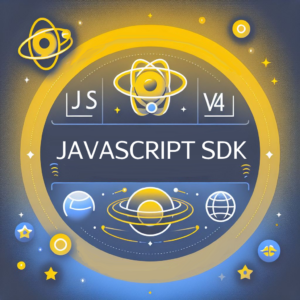Building modern, scalable applications often comes with the challenge of managing and scaling your database infrastructure. That’s exactly why we built Azure Cosmos DB – to provide a fast, flexible NoSQL database service that frees you from the operational heavy lifting. With automatic scaling, built-in high availability, and consistent single-digit millisecond performance at any scale, Azure Cosmos DB lets you focus on innovating rather than database administration.
Today, at the Microsoft Build 2025 conference, we’re excited to announce powerful new features to Azure Cosmos DB aligned to four key investment pillars that represent our commitment to empowering developers, advancing AI capabilities, and delivering unmatched performance and scalability for modern applications:
- Best for GenAI: provide unparalleled performance and scalability for generative AI workloads
- Mission-Critical: ensure your applications are always available, secure, performant, and manageable
- Developer Productivity: build apps faster by streamlining the development process.
- Integrated Data Estate: enabling seamless data management and analytics across your organization.
Below is a summary of the major announcements—all available now or in preview.
Best for GenAI
Generally Available Features:
- Full-text and Hybrid Search: Full-text and hybrid search are now generally available, supporting keyword & phrase search, ranked results using the BM25 algorithm, and full-text analyzers for enhanced text processing. Hybrid search combines multiple search scoring methods, such as vector similarity and BM25 full-text search, to deliver more relevant results. These are now conveniently available through the.NET SDK’s LINQ provider and Entity Framework Core – in addition to Azure Cosmos DB for NoSQL’s standard query interfaces.
Preview Features:
- Multi-language Full-text Search: Expands full-text search support beyond English to include French, Spanish, and German, improving search accuracy and relevance across multilingual datasets.
- Fuzzy Search: Enhances search resilience by handling typos and minor text variations, allowing near matches with a user-defined allowable “distance” – the number of edits such as insertions, deletions, or substitutions between the search term and the document text.
- Filtered Vector Search with DiskANN: Introduces new optimizations in which the query engine intelligently adapts in real time to select the most efficient query plan for vector searches with filters, enhancing performance, accuracy, and cost-efficiency behind the scenes. The process involves determining the best DiskANN index to use, including sharded DiskANN indices if applicable, and employing a filter-aware graph navigation algorithm to prioritize vectors matching the query filter conditions. These steps dynamically reduce internal search hops, lower query RU charges, and improve latency. These optimizations occur automatically without additional configuration.
- Azure AI Foundry + Agent Service integration: New integrations with Azure AI enable developers to build production-ready agentic applications powered by Azure Cosmos DB, including a new bring your own thread storage to enable easy persistence of agent memory, retrieve data via RAG, and orchestrate multi-turn interactions.
- Azure Logic Apps Document Indexer: You can now automate indexing of unstructured documents like PDFs, images, and markdown using Azure Logic Apps’s Document Indexer. Built-in templates let you parse, chunk, embed, and write vectorized content to Azure Cosmos DB for use with full-text or hybrid search. Templates support Azure Blob Storage or Microsoft SharePoint as sources, with optional Azure Document Intelligence for OCR.
See this here:
Best for Mission Critical
Preview Features:
- Per Partition Automatic Failover (PPAF): This feature expands upon Azure Cosmos DB’s active/active write capabilities (RTO=0) by bringing RTO~0 to strong consistency scenarios (RPO=0) where active/active write conflict resolution isn’t possible. PPAF adds dynamic geo-failover to strongly consistent geo-redundant databases, automatically failing over writes for individual partitions to alternative regions with an RTO < 2 minutes at P99 (reads can be served active/active with RTO=0). It automatically fails back when the original region recovers and works with Azure Cosmos DB SDKs with no code changes.
- Fleet Management: Fleets simplify the management of multi-tenant SaaS environments by introducing Fleetspaces (logical groups of Azure Cosmos DB accounts), throughput pools (sharing RU/s across database accounts while maintaining per-database-account isolation), and fleet analytics (monitoring performance, usage, and cost across database accounts with built-in dashboards and Microsoft Fabric export).
- Aggregated Logs and At-scale Monitoring: This feature makes it easier to observe behavior across large Azure Cosmos DB deployments by providing pre-aggregated logs and at-scale monitoring. It allows querying across database accounts, regions, and operations with tables like CDBDataPlaneRequests5M, monitoring RU/s, throttling, and error rates without scanning raw per-request logs. It is integrated with Azure Monitor and Azure Advisor for proactive insights, offering cost savings of up to 90% compared to traditional Diagnostics Logs.
- Throughput Buckets: This feature gives developers control over how RU/s are consumed in shared containers by defining up to 5 buckets, assigning RU/s caps per bucket, and tagging operations in code via SDK request options. It helps prevent background jobs from starving critical workloads and is ideal for governing database requests spanning across multiple microservice.
Developer Productivity
Generally Available Features:
- Serverless to Provisioned Throughput Migration: You can now convert an serverless Azure Cosmos DB account to provisioned throughput with one click—no data migration, no downtime. This preserves all data and configurations, immediately unlocks features like autoscale, SLAs, and multi-region writes, and provides a smooth path from experimentation to production-scale workloads .
 JavaScript SDK v4.0: The new JavaScript SDK v4 for Azure Cosmos DB is now GA and built for modern Node.js development. Highlights include an improved query pipeline with enableQueryControl for partition-level execution and lower RU/s, smarter, scalable bulk operations via executeBulkOperations, operation-level retries and congestion control, built-in client-side encryption (Always Encrypted), and native support for full-text, hybrid, and vector search. It’s fully backward-compatible and open-source, built in TypeScript .
JavaScript SDK v4.0: The new JavaScript SDK v4 for Azure Cosmos DB is now GA and built for modern Node.js development. Highlights include an improved query pipeline with enableQueryControl for partition-level execution and lower RU/s, smarter, scalable bulk operations via executeBulkOperations, operation-level retries and congestion control, built-in client-side encryption (Always Encrypted), and native support for full-text, hybrid, and vector search. It’s fully backward-compatible and open-source, built in TypeScript .
Preview Features:
- Global Secondary Indexes (GSIs): GSIs are now in public preview, enabling alternate partition keys and indexing policies on separate containers that automatically sync from the source. This allows you to optimize query patterns without having to remodel your data, eliminate cross-partition fanouts for non-primary-key lookups, and/or isolate read-heavy workloads coming from other microservices. You can apply advanced local secondary indexing to power full-text or vector search on GSI containers.
Integrated Data Estate
Azure Cosmos DB is now directly available in Microsoft Fabric (in preview)! You already know and trust Azure Cosmos DB for building mission-critical applications that require lightning-fast response time and flexible JSON schemas. Now, we’re bringing that power directly into your unified data and analytics platform in Fabric. This means you can use Cosmos DB as your operational database within Microsoft Fabric, and where it is automatically integrated into Fabric OneLake, real-time intelligence, copilot-powered PowerBI, and SQL—without having to stitch together separate services.
Final Thoughts
Whether you’re optimizing for speed, scale, cost, or intelligence, Azure Cosmos DB for NoSQL is evolving to meet modern application needs. From advanced search to operational analytics to AI integration, these new features offer more flexibility and control for every phase of the development lifecycle.
To explore docs and try it all out:
- Explore Azure Cosmos DB
- Try Full-Text and Hybrid Search
- Set Up Fleets
- Query Aggregated Logs
- Use AI Agent Storage
We’re excited to see what you build with it.
Leave a review
Tell us about your Azure Cosmos DB experience! Leave a review on PeerSpot and we’ll gift you $50. Get started here.
About Azure Cosmos DB
Azure Cosmos DB is a fully managed and serverless NoSQL and vector database for modern app development, including AI applications. With its SLA-backed speed and availability as well as instant dynamic scalability, it is ideal for real-time NoSQL and MongoDB applications that require high performance and distributed computing over massive volumes of NoSQL and vector data.
To stay in the loop on Azure Cosmos DB updates, follow us on X, YouTube, and LinkedIn.





0 comments